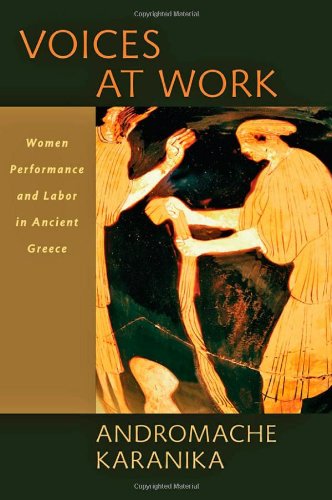

Most ebook files are in PDF format, so you can easily read them using various software such as Foxit Reader or directly on the Google Chrome browser.
Some ebook files are released by publishers in other formats such as .awz, .mobi, .epub, .fb2, etc. You may need to install specific software to read these formats on mobile/PC, such as Calibre.
Please read the tutorial at this link: https://ebookbell.com/faq
We offer FREE conversion to the popular formats you request; however, this may take some time. Therefore, right after payment, please email us, and we will try to provide the service as quickly as possible.
For some exceptional file formats or broken links (if any), please refrain from opening any disputes. Instead, email us first, and we will try to assist within a maximum of 6 hours.
EbookBell Team

4.8
14 reviewsIn ancient Greece, women's daily lives were occupied by various forms of labor. These experiences of work have largely been forgotten. Andromache Karanika has examined Greek poetry for depictions of women working and has discovered evidence of their lamentations and work songs. Voices at Work explores the complex relationships between ancient Greek poetry, the female poetic voice, and the practices and rituals surrounding women’s labor in the ancient world.
The poetic voice is closely tied to women’s domestic and agricultural labor. Weaving, for example, was both a common form of female labor and a practice referred to for understanding the craft of poetry. Textile and agricultural production involved storytelling, singing, and poetry. Everyday labor employed―beyond its socioeconomic function―the power of poetic creation.
Karanika starts with the assumption that there are certain forms of poetic expression and performance in the ancient world which are distinctively female. She considers these to be markers of a female "voice" in ancient Greek poetry and presents a number of case studies: Calypso and Circe sing while they weave; in Odyssey 6 a washing scene captures female performances. Both of these instances are examples of the female voice filtered into the fabric of the epic.
Karanika brings to the surface the words of women who informed the oral tradition from which Greek epic poetry emerged. In other words, she gives a voice to silence.